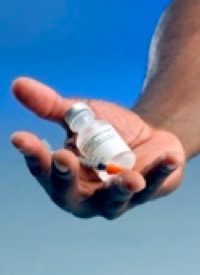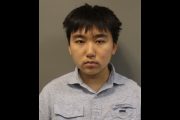
According to an aolnews.com article last week:
The pace of investigations into steroid use in the police ranks has picked up in recent months:
• A former police officer in Canby, Ore., who allegedly took delivery of some steroids while on duty pleaded guilty in February to purchasing steroids.
• An officer in South Bend, Ind., pleaded no contest in March to selling steroids.
• A Cleveland police officer was sentenced to a year in prison and five years of supervised release in April after he was found guilty of illegally purchasing steroids.
• A dealer in Paw Paw, Mich., allegedly told authorities that he supplied “several police officers” with steroids, which led one Kalamazoo officer to resign in May.
New Jersey’s largest newspaper, the Newark-based Star-Ledger, did a recent three-part series on the growing problem of steroid use within police ranks. After seven months of investigation, checking particularly into the Jersey City practice of the late Dr. Joseph Colao, it found at least 248 New Jersey officers and firefighters from 53 different agencies and towns for whom Colao had supplied illegal prescriptions for human-growth hormone and anabolic steroids. Most paid the doctor using their government health plans.
Said the Star-Ledger:
Six of those patients — four police officers and two corrections officers — were named in lawsuits alleging excessive force or civil rights violations around the time they received drugs from him or shortly afterward. Others have been arrested, fired or suspended for off-duty infractions that include allegations of assault, domestic abuse, harassment and drug possession. One patient was left nearly paralyzed after suffering a stroke his doctor attributed to growth hormone prescribed by Colao.
Among the health care providers interviewed who had picked up some of the late Dr. Colao’s patients, were those who said they prescribe hormones only when necessary. These suppliers “also downplayed the risk of increased aggression, saying such side effects are extremely rare as long as testosterone supplementation does not exceed physiologic levels, or levels the body has already seen at an earlier age.”
Harvard’s Harrison G. Pope Jr. remained wary, said the Star-Ledger:
Pope, the Harvard Medical School researcher who studies the psychological side effects of steroids, said he agrees aggressive reactions are more likely at higher levels, but he said research has shown bad reactions can result from even modest doses of steroids, such as those found in testosterone creams.
“You cannot predict one way or the other whether someone is going to have one of these reactions,” he said. “If that person is a police officer, they might have an inappropriate reaction.”
In July of 2009, Boston Police finished a three-year investigation into drug and steroid activity within its department. As a result, 11 police officers were found guilty and disciplined for their role in the scandal. Four patrolmen went to prison. Drug policies there were further tightened. About police steroid use in particular, Commissioner Ed Davis stated in a press conference:
It’s clearly illegal. It’s something that is detrimental to their physical well-being. And it’s also something that increases the potential for violence in the people who are taking it. So for all those reasons we have to stay very clear in our message to the officers that this is not acceptable and can’t be used in a police agency.
An abc.com article reported that “So-called ‘juicing’ has been anecdotally associated with several brutality cases, including the 1997 sodomizing of Haitian immigrant Abner Louima in New York City.” According to the aol.com report, “A lawyer for an 84-year-old Florida man who had his neck broken in September when he was thrown to the ground sought to get the Orlando police officer involved in the incident tested for steroids. The request was denied by the department, which claimed the test would violate the officer’s rights.”
But such reticence on the part of police officials is beginning to change. The web site nj.com reported:
State Attorney General Paula Dow has named eight members of a task force that will investigate the use of anabolic steroids among New Jersey law enforcement officers.
And the presidents of the state’s two largest police unions, to their credit, said they would now support adding steroids to the other illegal drugs that officers are randomly tested for.
They know there is a problem. One of the union officials, Ed Brannigan, the head of the state chapter of the Fraternal Order of Police, told the Star-Ledger that other officers and chiefs must know it, too.
“I’ve got to blame some of the police departments for this. They’ve got to be turning a blind eye to it. If you see someone going from 145 pounds to 210 pounds, you know something’s wrong,” he said.
Many officers are saying their intent [in using steroids] is to become safer and more competitive, especially when dealing with young, strong criminals. But Victor Conte of BALCO/Barry Bonds fame, who said he would not be surprised if up to a quarter of all policemen were “using,” observed the dangerous downside of weapons and authority in the hands of men on such steroids while interacting with the public:
I think overall, it’s kind of like alcohol. If you’re a jerk when you’re sober, you’re going to be more of a jerk when you’re using.



